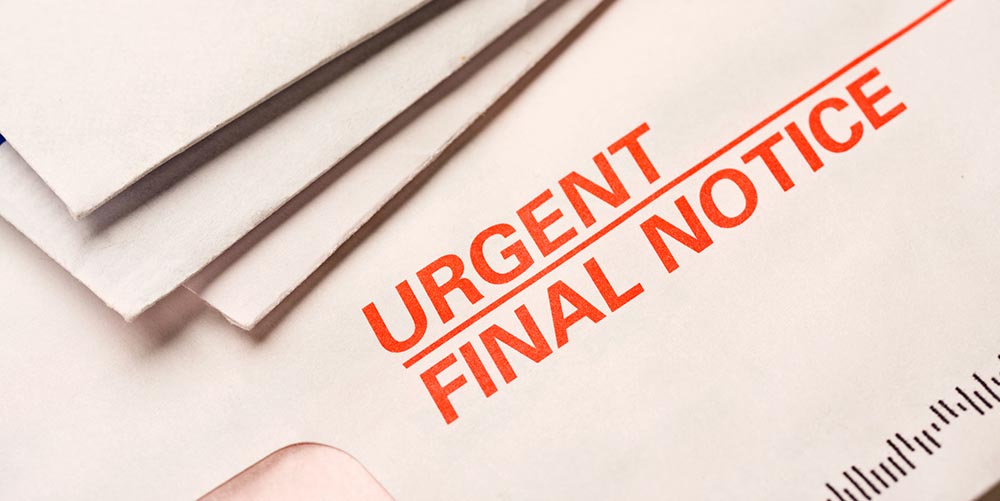A Comprehensive Guide to Sending a Letter Before Action
A note from the editor
This article provides information on formal requirements and processes for sending a letter before action and tips and best practices for doing so effectively.
In general, if a dispute proceeds to litigation, it is a requirement that parties comply with the pre-action protocol or Practice Direction. These requirements and procedures may vary depending on the type of debt. The court may take a dim view if parties fail to comply with the relevant procedure and may “sanction” either party for their failure, which could result in an order for costs. Accordingly, parties must understand each other’s position early on, so a carefully drafted Letter Before Action or abbreviated “LBA”, is crucial.
Introduction
In debt recovery, an LBA is crucial to help secure the outstanding payments owed to you or your business.
This guide will explain the purpose, components, and preparation of an LBA. It will also discuss possible outcomes and further steps to take.
What is a Letter Before Action (LBA)?
An LBA is a formal written demand sent to a debtor outlining the outstanding debt and the steps they must take to resolve it. This letter serves as a final warning before initiating legal proceedings to recover the debt. An LBA is typically sent after numerous attempts to resolve have been unsuccessful.
Why Send a Letter Before Action?
Sending a Letter Before Action offers several benefits, including:
- An LBA shows the debtor that you’re serious about paying the debt and will go to court if needed.
- A paper trail is a record of your attempts to pay the debt. You may need it if the debt goes to court.
- The LBA makes the debtor take action and settle the debt, so there’s no need for legal proceedings.
Critical Components of a Letter Before Action
An effective Letter Before Action should include the following elements:
- Include the full name and address of the debtor.
- Verify the correct address for the debtor, and in the case of a business, send a copy of the letter to the address registered at Companies House, in addition to any trading address. This ensures that the debtor cannot claim they did not receive the LBA. If you need clarification on this, First Capitol Tracing may be able to assist you.
- Send a copy of the letter via email using all available email addresses for the individual or business. Include a statement indicating that documents have been sent by post and email to the debtor’s email addresses.
- Use a reference number corresponding to the debt or overdue account, such as the customer account number, a purchase order number, or an invoice number.
- Enclose an accurate chronology of the debt, copies of unpaid invoices, or a current statement of account to support your claim.
- Clearly state the letter’s purpose from the outset, such as RE: Overdue Invoices issued by Creditor Limited.
- Specify the total amount owed, including VAT.
- Display the relevant statement referring to the appropriate Pre-Action Protocol prominently in the letter so that the debtor knows the required procedure if they dispute the debt. Include a link to the protocol.
- Notify the debtor that they could face additional charges according to any terms and conditions or, in the case of a business-to-business debt, refer them to The Late Payment of Commercial Debts Act.
- In the case of an individual, if interest is applied, it must be contractual. Note: Interest, according to section 69 of the County Courts Act 1984, which is currently 8%, can only be claimed when a County Court claim has been issued.
- Include a schedule that outlines any additional charges that have been added or could be claimed.
- Clearly state the consequences of non-payment, the action you intend to take, and the date (deadline), typically 14 days. In the case of a business to an individual, this must be a minimum of 30 days.
- Outline the potential consequences if the debtor fails to pay by the deadline, including legal action and potential additional costs.
- Advise the debtor that if Court proceedings are initiated and judgement is conferred, a County Court Judgment (“CCJ”) will be registered against them and will remain on the Register of Judgment for six years, which could impact both their credit rating and their ability to obtain credit.
- Provide details of the payment methods you accept.
- Include your full name and address or your company’s name and address and the person or department responsible for payment or enquiries.

Preparing the Letter Before Action: A Step-by-Step Guide
- Review the debtor’s account: Confirm the outstanding amount and ensure that all previous attempts to resolve the matter have been documented.
- Gather relevant documentation: Collect any contracts, invoices, or correspondence relating to the debt.
- Draft the Letter Before Action: Using the key components listed above, prepare a clear and concise LBA.
- Send two copies of the LBA via recorded delivery (“Signed For”) to ensure proof of receipt and another copy by regular post. This method ensures that a normal copy will be left on the premises if Royal Mail cannot deliver the Signed For.
Possible Outcomes and Next Steps
After sending a Letter Before Action, the following outcomes may occur:
- The debtor pays the outstanding amount: If the debtor pays the total amount within the specified deadline, the matter is resolved.
- The debtor proposes a payment plan: If the debtor offers a reasonable payment plan to settle the debt, consider accepting it or negotiating a mutually agreeable arrangement.
- The debtor disputes the debt: If the debtor disputes the debt or raises any issues, review the circumstances and, if necessary, provide evidence to support your claim.
No response from the debtor: If the debtor does not respond or fails to make any payment, consider moving forward with legal action. If legal action is appropriate, talk to a Solicitor or First Capitol for advice on what to do next.
Seeking Legal Advice and Assistance
If you are unsure about how to send a Letter Before Action or need help with debt, in the first instance, talk to First Capitol. We can:
- Review your case: Assess your situation and provide expert advice on the best action to recover the debt.
- Draft and send the Letter Before Action: Prepare a compliant and persuasive LBA on your behalf.
- Handle negotiations: Represent you in discussions with the debtor and negotiate a fair and favourable resolution.
- We can help you take the case to court and provide representation via our panel solicitors or Direct access Counsel.
Conclusion
A Letter Before Action (LBA) is a warning to debtors that could avoid legal action. This guide explains how to prepare and send an effective LBA, which may help secure the payment owed to you or your business. If you need further assistance, consider seeking the guidance of First Capitol to ensure the best possible outcome.
Get in Touch
If you’re a business struggling to collect owed money, it can be frustrating and time-consuming. First Capitol can assist. We have years of experience in debt collection, the expertise and resources to help you recover what you’re owed. So don’t let outstanding debts hold your business back any longer – contact us at First Capitol today and take the first step towards reclaiming your financial stability.
You can reach us at 03333 444991 or by submitting an enquiry.


